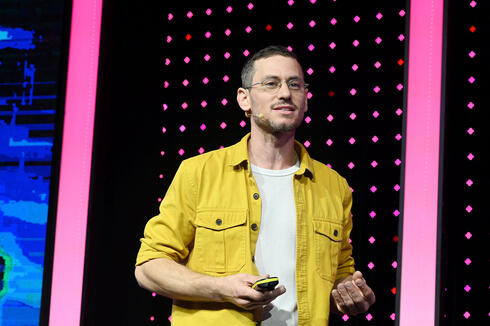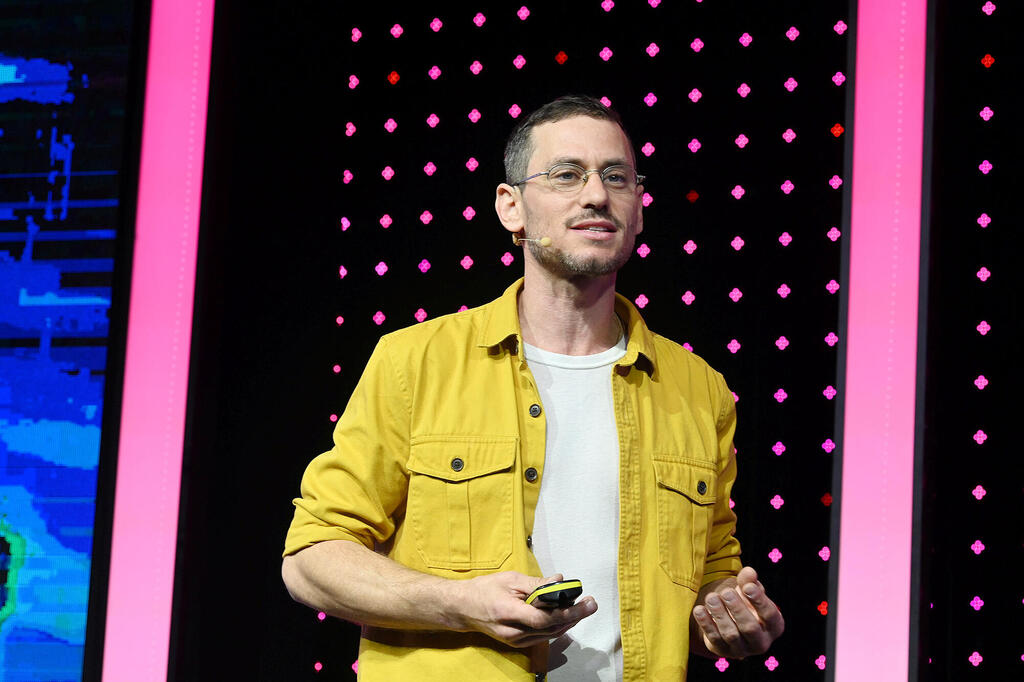
Tech TLV
FakeReporter CEO: "Disinformation is destroying the world"
"False information poses a threat to every social phenomenon and every significant event we experience as a society and country," added Achiya Schatz at the Calcalist and Bank Leumi Tech TLV conference.
“When there is fake news, when there is no science or reliable information, the ones who benefit are not the citizens but the leaders,” said Achiya Schatz, founder and CEO of FakeReporter, at the Tech TLV conference hosted by Calcalist and Bank Leumi.
“Disinformation is destroying the world,” Schatz said in his opening remarks. “It may sound repetitive, but that’s the reality. In Israel, disinformation was used to undermine the legitimacy of election results. In the U.S., it culminated in the storming of the Capitol on January 6, 2021. This is a hallmark of the post-truth era.
“When there is a market failure, it means the market is not producing what it is supposed to. In a democracy, the burden of this problem falls first and foremost on us, the citizens. Governments either benefit from disinformation or fail to adapt to technological changes. Tech companies, meanwhile, prioritize profits and take little responsibility.
“This leaves the public unprotected and uninformed. When we report false posts, or even serious issues like sexual harassment, tech companies act too slowly and often do too little.”
Schatz elaborated on his organization’s mission: “That’s why we founded FakeReporter. We dive into information, compile findings, and work to hold companies and governments accountable. This approach is making a difference. The public is getting involved.”
He continued, “But we realized that disinformation isn’t limited to the local political arena. For instance, we identified suspicious profiles that turned out to be part of a large Iranian network operating through WhatsApp to avoid detection. They used this network to suppress voting. This type of manipulation has far-reaching impacts on our society.
“On October 7, this problem came to the forefront again. We tracked a wave of influencers and journalists spreading false narratives, including claims that specific elements within Israeli society were responsible for the massacre. Alarmingly, today, 20% of the public believes that the military or internal actors played a role in aiding Hamas in the attack.
“False information poses a threat to every social phenomenon and every significant event we experience as a society and country. The World Economic Forum has identified disinformation as one of the most immediate threats to humanity—even surpassing the climate crisis. Why? Because if you can’t have informed discussions about climate issues based on scientific facts, no solution will work.”
Schatz also criticized major corporations for their lack of accountability. “The largest tech companies are aligning themselves with deregulation. This week, Mark Zuckerberg reversed Meta’s entire strategy, dismantling protections designed to safeguard citizens.
“Another growing issue is AI-generated disinformation, such as deepfake videos. For example, there was a fake video of Taylor Swift claiming the U.S. was funding a massacre in Gaza. These tools give liars the ability to dismiss any evidence as AI-generated. Minister May Golan recently claimed that a recording published in an investigation about her was an AI fake. This creates an environment where truth itself becomes suspect.
“That’s why we’re pushing for policy changes—to ensure governments and regulators act in the public’s interest. Those who spread harmful disinformation must face consequences. At the same time, we need to promote information and digital literacy, empowering people to navigate the digital age responsibly.”














